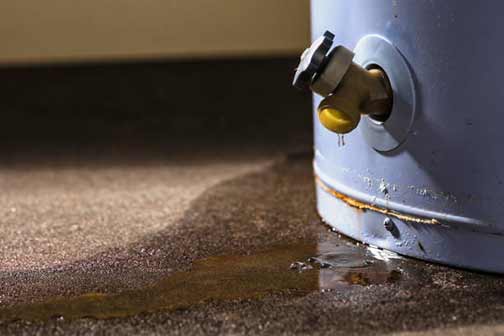Understanding the Basic Importance of a Reliable Water Heater in Home Comfort and Functionality
A dependable water heater is an unappreciated but indispensable component of modern life, working behind the scenes to provide the comfort and convenience that we might too easily take for granted. From morning showers to washing dishes, laundry, and cooking, hot water is a necessity to provide cleanliness, comfort, and efficiency in daily activities. When such critical appliance breaks down or ceases to function, it can cause severe disruption, inconvenience, and even safety hazards in the household.
The appreciation of a working water heater underscores why homeowners should understand its usual malfunctions, identify signs of initial failure, and be conversant with potential causes of such malfunctions. This kind of information not only keeps homeowners properly trained in fixing small issues simply but also enables them to make informed decisions about repairs or replacements, ultimately keeping their homes warm, safe, and economical.
Reading Common Signs That Indicate Water Heater Issues and the Benefits of Early Intervention
Having the knowledge of what indicates that your water heater is about to fail is vital in order to prevent further damage, prevent repairs from escalating too much, and extend the life of the appliance. The most obvious sign is that there is no hot water at all, which typically indicates failure of the heating element or power supply fault. Inaccurate water temperature, where hot water suddenly turns cold or fluctuates erratically, could be due to thermostat malfunction or sedimentation that disrupts heat transfer.
Strange noises such as banging, popping, or rumbling sounds are probably caused by sedimentation or mechanical tank malfunction. Unpleasant smells in the water are a sign of bacterial growth or corrosion in the tank. Leaks or puddles that one can see at the bottom of the water heater are clear indications that the equipment is broken, possibly due to corrosion, a leaking valve, or tank crack. Detecting such signs early allows homeowners to fix issues before they turn into complete failures, avoiding expenses while ensuring hot water availability.
Understanding the Underlying Causes of Water Heater Failures and Their Impacts on Performance
Water heater failure is generally the result of a combination of mechanical, electrical, and environmental factors that wear down the appliance over time. Sediment buildup is one of the most common causes, especially for individuals with hard water. Minerals such as calcium and magnesium develop at the bottom of the tank, insulating the heating element and reducing efficiency. This buildup over time can cause the unit to overheat, fail, or leak. The other big issue is corrosion, which is most often the result of mineral-rich water that works on the metal tank and degrades its structure, leading to leaks or ruptures.
Electrical problems such as faulty thermostats, heating elements, or wiring issues can lead to unstable heating or total failure, especially in electric water heaters. Mechanical components like the dip tube, which directs cold water to the bottom of the tank, or the pressure relief valve, which prevents too much pressure from building up, can also fail and impact safety and functionality. By understanding these causes, homeowners are more able to diagnose problems and decide whether repairs are feasible or a replacement is necessary.
Step-by-Step Guide to Troubleshooting a Water Heater That Isn’t Working Properly
If your water heater is not functioning as it should, there are some handy troubleshooting you can perform before calling in a professional technician. First, determine if the unit is receiving power. For electric units, look for tripped breakers or blown fuses in the circuit breaker or fuse box and reset or replace them accordingly. Next, verify the thermostat settings—they are typically adjustable and might have been unknowingly changed; a setting of around 120 degrees Fahrenheit is usually best for safety and efficiency.
If the water heater is making noise or producing little or no hot water, sediment buildup could be the issue; draining and flushing the tank will normally correct this condition. Additionally, inspect the area around the unit for any indications of leaks, rust, or corrosion that could be indicative of more serious problems. If these basic steps do not restore normal operation, it is suggested that a professional plumber be called who will be able to perform a more detailed diagnosis, including electrical component testing and internal component inspection for damage or wear.

Knowing When to Call in the Professional for Water Heater Repair
While some minor issues can be resolved with basic troubleshooting, there are certain issues that require the expertise of a professional technician or licensed plumber. Leaks that persist, especially those that do not stop after tightening connections or replacing faulty valves, are a clear sign that professional intervention is needed. Similarly, if your water heater continues not to deliver hot water after adjustments and flushing, or if it is making unusual sounds that will not abate, it is time to call in a professional.
Electrical issues such as tripped circuit breakers related to the unit or signs of corrosion in the tank indicate that professional expertise and gear are necessary to conduct safe and effective repairs. Repairing them sooner can prevent further damage, reduce safety risks, and extend the lifespan of your appliance, ultimately saving you frustration and money in the long run.
Preventative Maintenance Tips to Get the Best Out of Your Water Heater’s Performance and Life
Regular maintenance is the secret to getting your water heater to operate efficiently and last as long as it most likely will. One of the best preventative measures is to flush the tank annually to remove sediment buildup, which dramatically improves performance and reduces the possibility of corrosion. Replacing the anode rod periodically, if necessary, protects the tank from rust and extends its lifespan. Setting the thermostat at a safe and energy-saving level of around 120 degrees Fahrenheit prevents overheating and conserves energy.
In addition, regular checking for signs of leaks, corrosion, or wear allows early intervention to avoid allowing minor issues to escalate into costly repairs. Insulation of the water heater and hot water pipes can also help improve energy efficiency. Performing these habits of maintenance not only prolongs the life of your water heater but also keeps it operating safely, which saves you money on energy bills and repair costs while enjoying hot water on demand whenever you need it.
Making a Decision on When to Replace Your Water Heater and How to Select an Appropriate Model
All water heaters, even with regular maintenance and prompt repairs, have a limited lifespan, generally between 8 and 12 years based on usage, quality of water, and maintenance habit. Some of the indicators that your water heater needs to be replaced are constant breakdowns, continuous leaks, and any noticeable drop in energy efficiency that results in increased utility bills. If your water heater is over a decade old and requires costly repairs, replacing it with a modern, energy-efficient model may be the most practical and cost-effective option.
Upgrading can improve performance, reduce energy consumption, and provide peace of mind knowing your household has a reliable hot water supply for years to come. When selecting a new water heater, consider household size, hot water usage, available room, and energy sources of choice—electric, gas, or solar. Taking advice from a professional will allow you to pick the most suitable model suited for your requirements, which will yield the best performance and value for your money.
Final Thoughts: Making Sure There’s Always Easy Access to Safe, Reliable Hot Water in Your Home
To have a functioning water heater is fundamental to comfort, cleanliness, and efficiency in everyday life. Knowing the warning signs of failure, the common causes, and how to troubleshoot or when to seek a specialist can help a lot in preventing costly repairs and safe operations. Regular maintenance, timely replacement, and informed decision-making are the keys to extending your appliance’s life and its optimum level of performance.
By being proactive and educated about your water heating equipment, you can have the confidence that your house will remain a warm haven with a constant supply of hot water—ensuring the health and comfort of your family for years to come.


